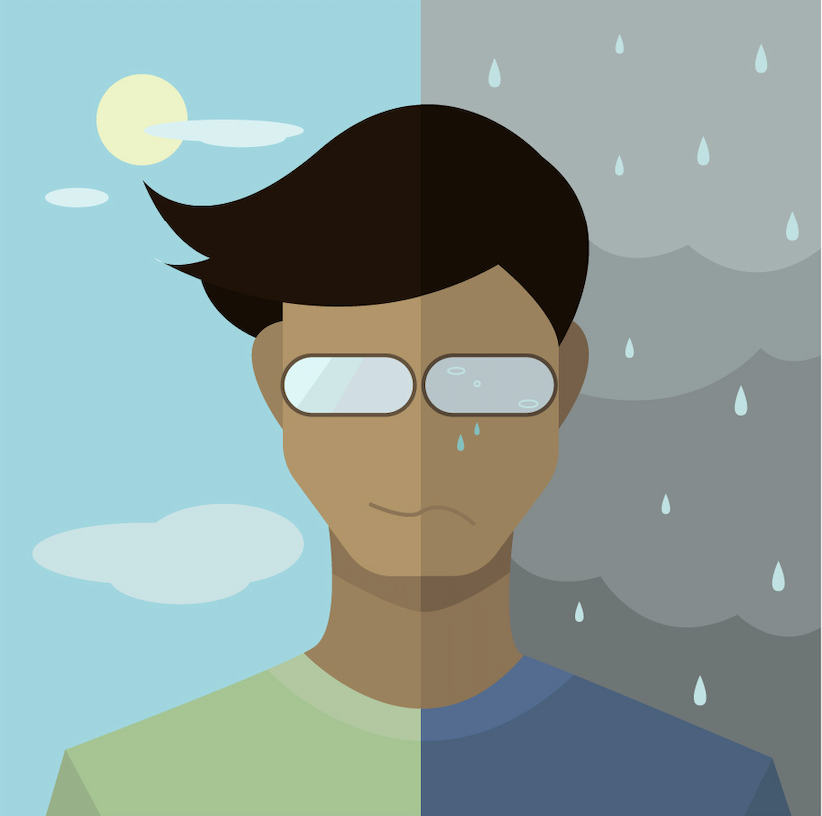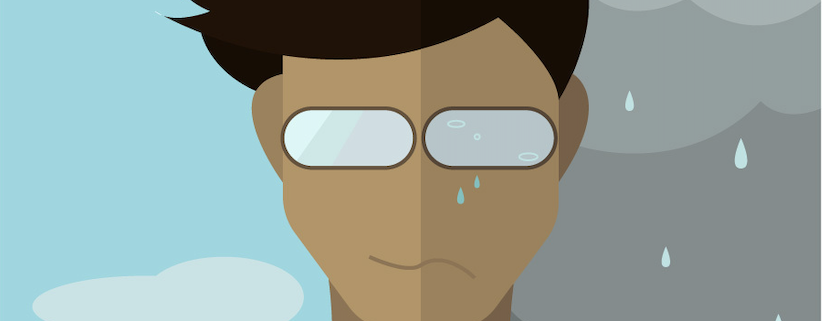OPINION: Students should openly talk about seasonal affective disorder

The rain and cold weather gripping Los Angeles in the past few weeks has prompted new conversations about the cause-and-effect relationship between weather and mood. While seasonal affective disorder may not be commonly discussed at campuses like USC, it is a mental health concern that affects many college students across the United States. Destigmatizing mental illnesses, especially SAD, is worthy of conversation at USC, and the student community should do more to engage in such discourse.
SAD is a type of depression that emerges with seasonal changes. Symptoms often begin in the fall and winter months. In some cases, SAD can also affect people during the summer months, and in those cases, symptoms become more prominent during the spring. Those who experience SAD experience symptoms like loss of interest in activities, fatigue, insomnia, difficulty concentrating and, in extreme cases, thoughts of self-harm and suicide.
Increasing SAD awareness can also help promote discourse about overall depression on campus. In a recent article published by the University of Michigan’s Michigan Daily, clinical director Jim Dolan stated that almost a quarter of students report depression as a primary concern in their daily lives. But a 2016 freshman survey conducted by the UCLA Higher Education Research Institute found that a record-high number of 11.9 percent of students in the incoming class reported that they frequently felt depressed over the past year.
Although many college campuses, including USC, have increased accessibility and expanded their counseling services, the stigma surrounding mental health on campus directly affects the number of students who choose to seek treatment. In a recent study, UCLA sociology professor Michael Gaddis concluded that college campuses with higher stigma toward mental health treatment see less treatment seeking behavior among students. With this in mind, students have the responsibility to create a campus culture that openly talks about mental health.
While USC Student Health has made efforts to increase student awareness and destigmatize mental health on campus through the expansion of counseling resources and advertising available resources throughout campus, it is also incumbent upon students to participate in destigmatizing these issues. Because students can feel uncomfortable discussing topics as personal and private as their emotional well-being, discussions about SAD are commonly discouraged in general conversations.
At USC, students should approach conversations about mental health with more open minds. USC students can take the lead on changing campus culture by starting conversations with their peers about common mental health struggles. Students should also actively educate themselves and others about mental illness.
All students should feel compelled to take part in learning about mental health issues. Undiagnosed and untreated illnesses can result in severe consequences for students experiencing them. Students should feel incentivized to be attentive and empathetic toward their peers — mutual empathy maintains the vitality of the University and keeps the Trojan Family strong.
Decreasing the stigma surrounding depression and SAD can be accomplished through simple acts. Individuals can lessen the mental health stigma by asking peers how they are doing, normalizing vulnerability and encouraging others to talk about mental health with peers or counselors.
Although SAD may not widely regarded as an issue that affects many USC students, it falls under an umbrella of mental health issues that can affect anyone. Students should feel as comfortable talking about their emotional and mental well-being as their physical health, a mindset that can only be achieved through communal efforts to combat mental health stigma on campus. To improve the quality of life on campus, students should actively work to increase their own awareness and become more compassionate members of the USC community.

